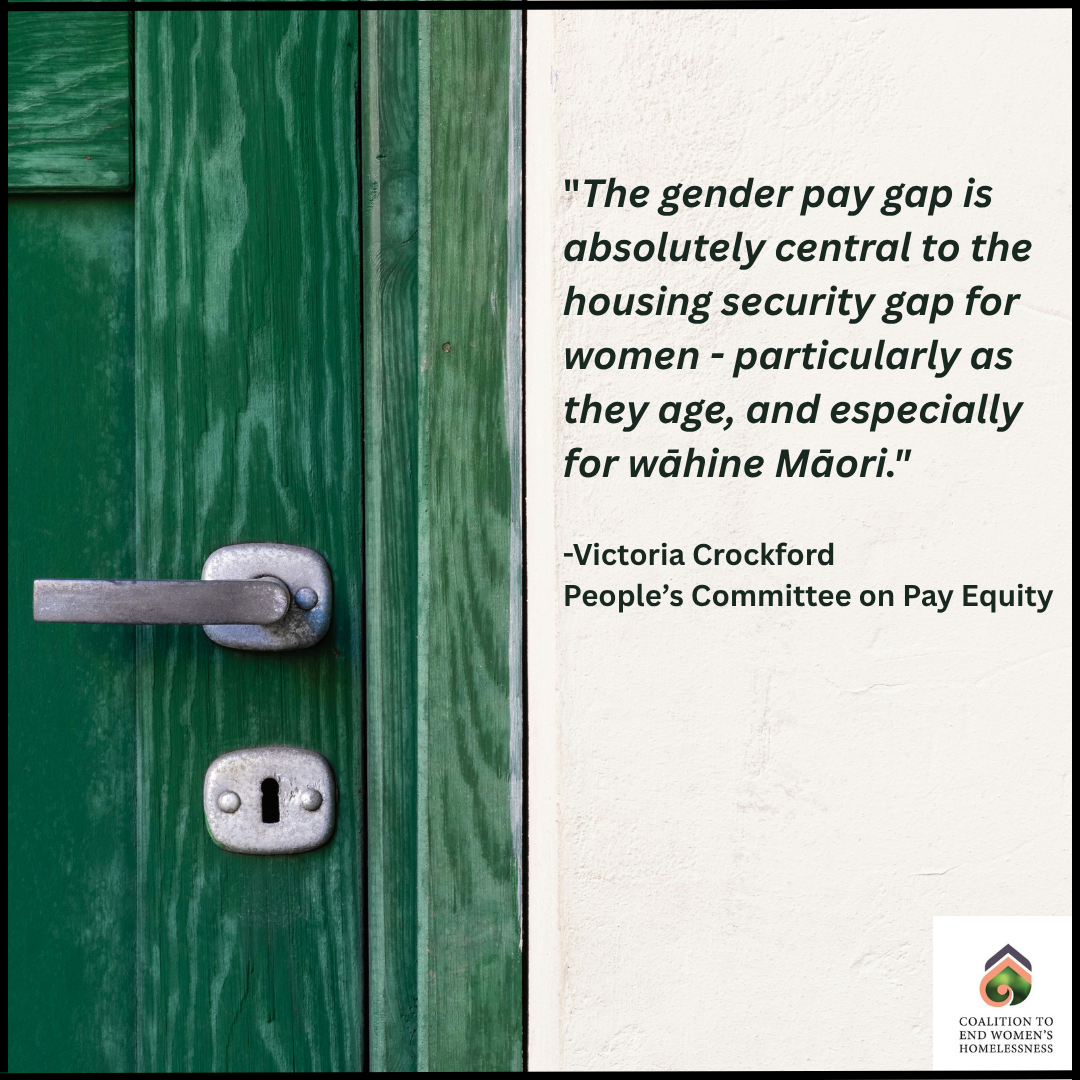International Day for the Eradication of Poverty – 17 October
Earlier this week, CEWH Kaihautū Kathie Irwin and Project Director Victoria Crockford gave a compelling submission to the People’s Committee on Pay Equity. On this International Day for the Eradication of Poverty, we highlight the urgent connections between pay inequity and housing precarity in women’s lives.
Ending social and institutional maltreatment by ensuring respect and effective support for families
The International Day for the Eradication of Poverty (17 October) underscores that ending poverty is about dignity, justice, and belonging - not just income. This year’s theme focuses on ending social and institutional maltreatment by ensuring respect and effective support for families.
CEWH Submission: pay equity and housing insecurity
In their submission, Kathie and Victoria drew on CEWH’s recent research Ngā Ara ki te Kāinga, and their years of advocacy.
"The gender pay gap is absolutely central to the housing security gap for women - particularly as they age, and especially for wāhine Māori," Victoria said.
Financial insecurity, she added, has immediate and direct consequences.
"We are hearing story after story of the fact that the financial insecurity that women experience as they age, due to the gender pay gap over their lives, is putting them directly into housing precarity."
Kathie Irwin highlighted the compounded challenges faced by wāhine Māori:
"When you look particularly at older [Māori] women, the compounding impact of negative forces all through their lives leads to a situation which the Retirement Commission research What does retirement look like for Māori identifies as increased precarity, and a real inability for people to fight those structures at a personal level."
"The pay equity issues for wāhine Māori, particularly across generations, are putting our older women in a precarious position," Kathie said.
Victoria emphasized that the financial struggles women experience are not just historical - they are often experienced for the first time in later life, showing the ongoing impact of inequity.
"Throughout the research we heard many stories from women who are experiencing this type of [housing] precarity for the first time, and it is absolutely related to their financial insecurity."
The impact of pay inequity
Without lifting wages for lower-paid women to reflect the true value of their work, intergenerational poverty persists, particularly among wāhine Māori. Pay inequity not only affects women today but also shapes the opportunities and well-being of their children. The research underscores the urgent need for equitable pay policies to reduce housing precarity and support families to thrive.
Key findings from Ngā Ara ki te Kāinga include:
50% of people experiencing homelessness in Aotearoa are women—or 57,000 women—whose health and housing needs are often unmet.
Wāhine Māori are disproportionately affected, making up over one-third of women experiencing homelessness, as well as single mothers and increasingly older women.
Older women are at particular risk: Lifelong pay inequity directly contributes to housing insecurity later in life. Financial insecurity begets housing insecurity, which often leads to ill-health.
Higher caregiving responsibilities: Severely housing-deprived women are more likely than men in the same situation to have children, and more likely than other women to have four or more children.
Sole parent support and financial pressures: In 2018, 17% of severely housing-deprived women received sole parent support, compared with just 2% of men, with similar rates in 2023. This highlights the dual pressures women face in managing caregiving responsibilities alongside financial and housing insecurity.
Read Ngā Ara ki te Kāinga here: Ngā Ara ki te Kāinga PDF
Learn more about Mana Wāhine: Improving Outcomes for Wāhine Māori
View the submission here at timecode 01:58:30

